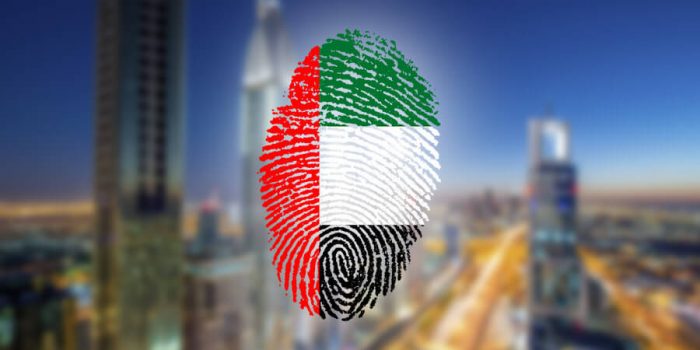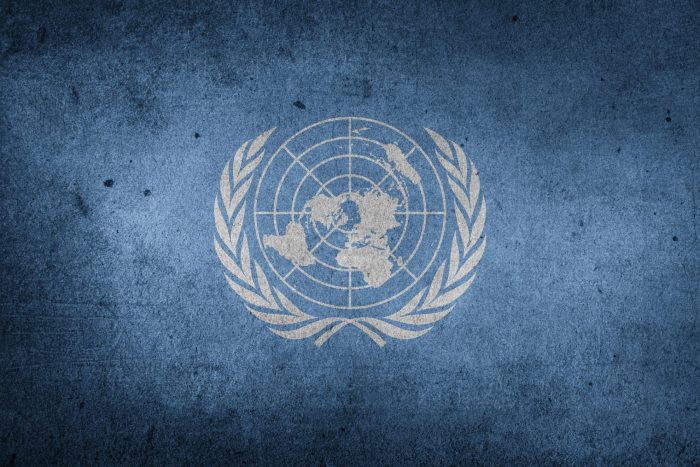The United Nations General Secretariat praised the digital initiatives launched by the UAE to confront the spread of the emerging “Corona” virus and reduce its social, health, and economic repercussions, noting that these initiatives represented a global model in how to harness digital solutions And take advantage of them to confront the epidemic.

This came in a report issued by the Department of Economic and Social Affairs of the United Nations Secretariat, entitled “A Package of Digital Government Initiatives in Response to the Covid-19 Pandemic,” which sheds light on developments in the digital responses of UN member states against the pandemic and the most prominent trends, and provides a preliminary analysis of its main features.
The report focused on the digital initiatives of UN member states in 9 main areas: information exchange, e-participation, e-health, e-business, contact tracing, social distancing, tracing the injured, work, distance learning, digital policy and partnerships.
The report noted the formation of the Supreme National Committee to regulate volunteering during crises in the UAE, which came in light of the decisions taken to prevent the emerging corona virus, indicating the activation of the volunteers platform.
Emirates “as a main platform for receiving and approving volunteer requests in times of crisis, supervising volunteers during crises, ensuring their health and safety and providing them with all necessary support, in addition to coordinating with local government and semi-government agencies to unify volunteer campaigns during crises.
The report touched on the digital initiatives launched by the UAE in the field of “e-health”, including the “interactive health map” for the UAE launched by the Federal Competitiveness and Statistics Authority through its website and the authority’s social media sites, which allow users to search for the sites of hospitals, medical care centers, and clinics within The state, by using the name of the emirate, or the main and sub-region, or mentioning some of the facility’s specifications, or by knowing the nearest health facility nearby and choosing the distance range according to the number of kilometers.
In the same context, the report referred to the “Do not cripple them” campaign for psychological support launched by the National Program for Happiness and Quality of Life through digital media and social media tools in cooperation with more than 50 experts and psychologists and inspirations in the fields of psychology, psychosocial support and life skills that help Community members in overcoming the psychological impact of the challenge associated with the emerging coronavirus.
The report highlighted a set of initiatives launched by the Telecommunications Regulatory Authority in response to the Coronavirus crisis, including the provision of 14,000 computers for students in the first cycle in light of the transformation of education in schools into distance education, and the provision of free internet data via mobile phone to families that do not have home Internet services, in order to facilitate These families have access to a distance learning service for their students, a voice message service when making phone calls, and SMS alerts for citizens of the country abroad to inform them about the evacuation procedures and precautions to be taken, and other initiatives that aim to empower the communications and information technology sector in supporting efforts The precautionary measures taken by the UAE against the virus.
He pointed to the Al-Hosn application, which was launched by the UAE and is considered as the official digital platform for the new Corona virus tests “Covid-19”, which provides people with the results of their tests directly on their phones, and the application also depends on the use of short-term signals of “bluetooth” technology, to show whether it is The person is in close proximity to people who have had contact or interact with people who have tested positive for the “Covid-19” virus, in addition to providing a service that shows the extent to which the people calling for home quarantine abide by the instructions for quarantine and not have contact with other people during the quarantine period.
The report praised the work and distance education system that the UAE succeeded in implementing during the outbreak of the new Corona virus, thanks to its proactive and integrated strategy for digital and electronic transformation of all its services.
He dealt with the “digital month” initiative launched by the Abu Dhabi government last March with the participation of more than 45 government agencies in the Emirate of Abu Dhabi, which achieved impressive results represented in the increase in the adoption of digital services to 94% at the level of the emirate, and the increase in the number of transactions through digital channels by 83%, In addition to recording a 25% increase in the number of visits to digital channels.
He explained that government agencies in Abu Dhabi today provide more than 1000 government services that are provided through various digital channels, which reflect more than 8 million transactions that were completed digitally during the last quarter of last year.
The report reviewed the Virtual Labor Market initiative, which is a digital platform that allows job seekers inside and outside the country to register on the site, enter their CVs and their own files, and view job vacancies that companies advertise in the country. The platform also helps companies in the country meet their job needs of competencies. And talents, as these companies can create their own page and display their job vacancies through this page, as well as search the website for the competencies required of job seekers according to their personal files.
He touched on the UAE’s use of digital and electronic technologies to detect suspected cases of the virus, including robots, drones and temperature scanners.
The report also sheds light on successful experiences in using digital applications to send awareness messages to all members of society, most notably the experience of the Media Cultural Office in the Supreme Council for Family Affairs, which issued and published educational videos on various social media platforms about “COVID 19” and provided a message to the community about the need. To adhere to preventive measures from it.




![The Top & Most Popular Seafood Bucket Restaurants in Dubai for you [Never Miss]](https://uae24x7.com/wp-content/uploads/2020/09/8-seafood-in-a-bucket-scaled-e1600739237403.jpg)
![Procedures for Renewing the Driving License in Abu Dhabi [3 Simple Steps]](https://uae24x7.com/wp-content/uploads/2020/07/Capture-9-e1595666454466.jpg)





